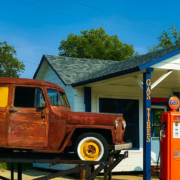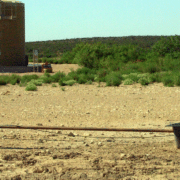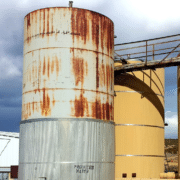Have you heard of 1031 Exchange Artwork? Artwork and mineral rights do not have a lot in common. Whereas one hangs on a wall or appears in a gallery. The other is deep below the surface of the earth. Perhaps there is only one thing that artwork and mineral rights have in common. It is that both of these assets could be found in a well-balanced investment portfolio.
As energy becomes more important with each passing day, mineral rights continue to be one of the most valuable assets. Especially for American investors can hold. If the time has come to part ways with a piece of art, large sales can be maximized. This goes with a smart reinvestment.
In this article, we will break down the steps to take to 1031 exchange artwork. In doing so, we will showcase how like-kind properties such as mineral rights are the best way to maximize the sale of artwork.
How to Sell Your Artwork
Artwork has been one of the longest-standing types of assets throughout human history. Today, artists around the globe are selling their work in galleries, both online and in person. While there are a million different ways to network and sell pieces of your own artwork, this guide is intended to help investors who purchase and sell fine art for their homes, office space, and more.
You can 1031 exchange artwork only once the artwork is sold. If you are trying to sell a private collection of fine art, there are a few different methods you can choose from. Most commonly, investors choose to work with an art dealer. With mitigation and connections, a dealer may be able to accelerate the sale of your art at a similar or increased price for what you originally paid for it.
Determining the Value of Artwork
Artwork is tough to put a price on. In fact, it is safe to say that most people in the world have walked through a “fine art” gallery only to be left in shock to learn about the great expense of relatively simple-looking art pieces. With that being said, the fine art market continues to boom throughout the modern age and the price of a piece or portfolio is truly only equal to the price that someone is willing to pay for it.
Depending on the nature of the piece, any artwork is usually priced on:
- The Size
- The Materials
- Framing vs. Unframing
- Transportation Concerns
- Artist Reputation
- Quality
- And more
Taxes Paid on the Selling Artwork
When selling artwork, the sky’s the limit. While starving artists may never get their reward, there are also many pieces around the world being exchanged for huge sums of money. While cash deals at artist’s markets may never see taxes being applied to the profits, there are considerable taxes paid on the sale of large private pieces and collections of art. Typically this includes:
- Federal Income Taxes
- Capital Gains Taxes
- Sales Taxes
- Local Taxes
- And More
1031 Exchange Artwork
Depending on how long you held your artwork in your private gallery or collection, the sale may have short or long-term capital gains taxes applied. This could be anywhere from 0 to 20% of the piece’s final price, depending on how much the artwork is sold for.
With a 1031 exchange, artwork can be sold without having to pay any capital gains taxes. Here, the artwork must be “exchanged” for another asset within a fixed period of time. In doing so, reinvestments of funds qualify for complete or partial deferral of capital gains taxes.
Artwork Like-Kind Properties
The IRS qualifies pieces of fine art into the private property category. This means that artwork is no different than your house, your clothes, or your car and it can be bought and sold on the open market as a privately owned good. In a 1031 exchange, artwork can be sold in exchange for:
- Mineral Rights and Royalties
- Homes and Apartments
- Trailer Parks
- Shopping Malls
- And so much more.
1031 Artwork Exchange Timeline
With artwork sales, finding the right buyer is everything. Sometimes this is accomplished as soon as the piece premiers, whereas other times fine art can be held in a private gallery for many years before being purchased by an art collector. With this in mind, the clock begins ticking on 1031 artwork exchange eligibility as soon as a piece of artwork is sold.
Within 45 days of the sale of the artwork, one property must be identified for a like-kind 1031 exchange to be valid. Beyond this, taxpayers have exactly 180 days to purchase the new property for the elimination of capital gains taxes.
For additional requirements, please see our 1031 Exchange Rules and Requirements Page.
Using an Intermediary to 1031 Exchange Artwork
With the paperwork to file and deadlines to meet, we highly recommend working with a 1031 exchange intermediary when selling artwork and eliminating capital gains taxes. In doing so, taxpayers can focus more on their time identifying and evaluating potential assets.
What to 1031 Exchange Artwork For
More than anything, we strongly recommend that first-time sellers and experienced investors consider purchasing mineral rights in a 1031 artwork exchange. As the owner of a property’s subsurface, mineral rights holders can enter into mineral rights leases with oil and gas companies.
In doing so, a steady stream of mineral royalty payments can be earned as a fixed percentage on the monthly profits from natural resource sales. Mineral royalties are only available in a few countries throughout the world, with the United States being one of the few nations that allow the private ownership of mineral rights.
Conclusion
In conclusion, we hope that this article was helpful to people selling their artwork. We also how that you will utilize a 1031 exchange. When comparing new, like-kind properties, we strongly suggest considering mineral rights as a great part of any diverse investment portfolio.
If you have further inquiries on 1031 exchange artwork, feel free to reach out to us here.










